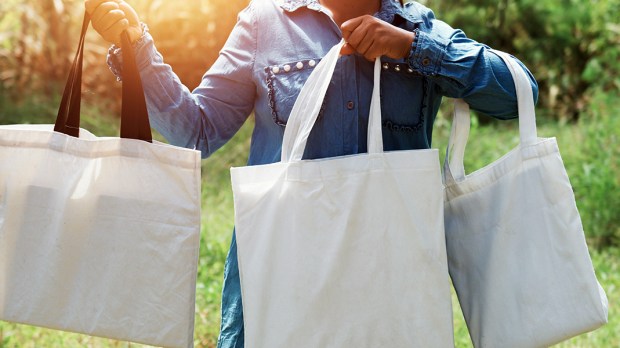Lenten Campaign 2025
This content is free of charge, as are all our articles.
Support us with a donation that is tax-deductible and enable us to continue to reach millions of readers.
Have you stopped using plastic straws yet? Word on the street is they’re destroying the world. As someone whose family has been using washable stainless steel straws for a while now, even I think the fuss over plastic straws is a bit much. It doesn’t hurt to be aware of the fact that, yes, plastic ends up in a landfill and is polluting our oceans, but sometimes I wonder if these trends turn people off to the idea of being a conscious consumer.
Over the past few years, I’ve given the subject a lot of thought. To be a conscious consumer means to seek environmentally friendly products that promote small business and support a living wage for the people who produce them. The idea is that every time we spend money, we’re making a choice for what type of world we want to live in. But I see both ups and downs to this.
Let’s start with the positives of conscious consumerism. First, it promotes more engagement and thoughtfulness. It makes us ask hard questions about the impact our choices have on the environment and the living conditions of other people. If enough people use their consciences when considering what products to purchase, then companies that abuse the environment and their employees will be forced to change their business model.
Second, purchasing with more deliberation often results in acquiring higher-quality products. Not settling for poorly made, cheap items that are mass-produced by underpaid workers definitely means better quality.
Finally, even if there are no rewards for the consumer, conscious consumerism is an attempt to make the world a better place and that should be its own reward.
That’s well and good, but here are the drawbacks …
First, conscious consumerism is more expensive, and that isn’t always feasible for a family budget.
Second, when choosing among different products and companies, there aren’t always good options. Most companies, with enough research, will have a few practices that are concerning, either in their labor practices, environmental impact, or political involvement. The products themselves aren’t perfect, either. For instance, there was a time we were supposed to use plastic bags at the grocery store and stop using paper. Now we’re supposed to use paper and stop using plastic. Both have drawbacks. Of course, we should probably just bring reusable cloth bags, but my point still stands that few of our choices are “perfect” as consumers.
Finally, there are the trendy, environmental fads and I worry that I go along with them because it’s an easy way to soothe my conscience. It’s hard to apply conscious consumerism consistently. It’s a good idea in theory but doesn’t always work in practice because what seems simple can actually be impossibly complicated.
Unless, that is, we think differently about our purchasing habits. If we slightly adjust our perspective, then conscious consumerism becomes far more simple.
For me, the big insight came when I was taking out the garbage. I realized that whether I use paper or plastic grocery bags, they end up in the garbage. And it doesn’t matter if the pile of clothing I bought came from an ethical source, I still just bought too many clothes that I don’t need. The big problem is buying and throwing away a lot of stuff.
Another part of the problem I see when I look at the garbage can is that a lot of products we buy have the labels of large corporations. Now, large corporations aren’t necessarily evil or bad, but their business model can be murky and their supply lines require enormous resources. Simply switching brands and continuing to consume doesn’t always solve the problem. So the change our family made was simple: We began to consume less. We haven’t taken vows of poverty or become anti-materialists — and I still have to take out the garbage — but now I take out a little less.
Try buying one less item per month. Drive to the mall one less time. Skip the fast food place and eat at home on real dishes. Make the smartphone last six more months before indulging in a new one. Turn the lights off when you leave the room. If we all did the simple, smaller things, it would have large, definable effects.
Conscious consumerism is a personal choice. No one can do it for us. The solution isn’t political, it isn’t guilting each other or hoping a new corporation will do it for us. For our family, the effect of consuming less has been positive. We save some money, live more responsibly, and are learning not to be too attached to our patterns of consumption. Perhaps you’re doing this way better than us, or perhaps you aren’t particularly concerned about it at all. We all make our own choices. All I’m saying is that it can be much more simple than we think.

Read more:
3 Lessons about minimalism from St. Francis of Assisi

Read more:
These nuns call consumerism the cause of human trafficking

